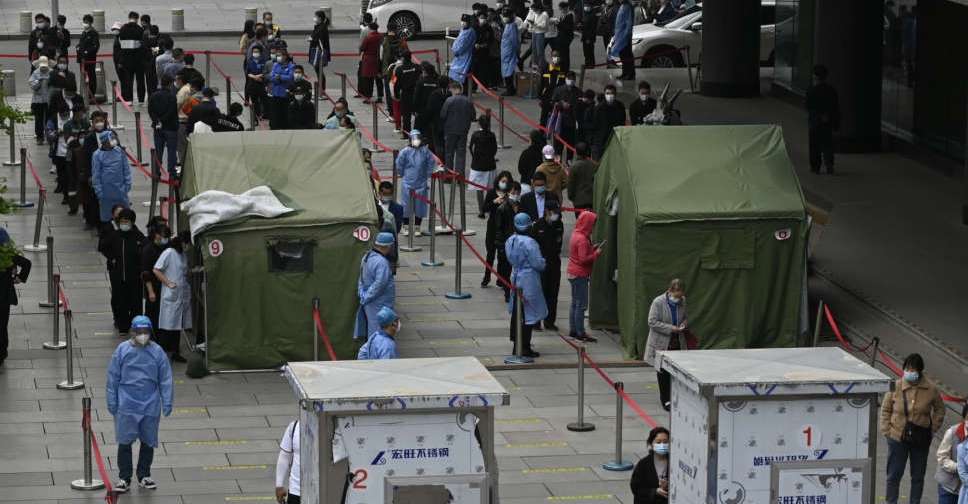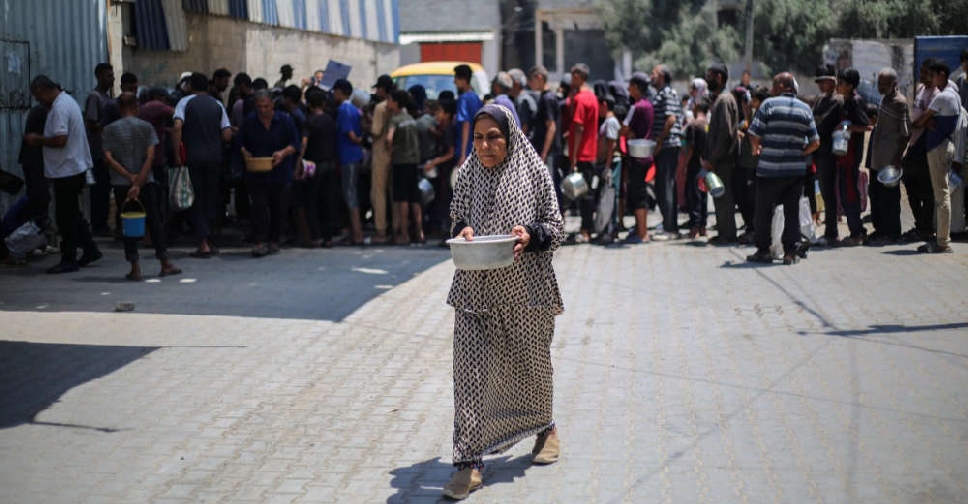
China's capital Beijing closed more businesses and apartment blocks on Friday, with authorities ramping up contact tracing to contain a COVID-19 outbreak, while resentment at the month-long lockdown in Shanghai continued to grow.
In the finance hub, fenced-in people have been protesting against the lockdown and difficulties in obtaining provisions by banging on pots and pans in the evenings, according to a Reuters witness and residents.
A video shared on social media, whose authenticity could not be immediately verified, showed a woman warning people via a loud-hailer not to do so, saying such gestures were being encouraged by "outsiders".
The Shanghai government did not immediately respond to a request for comment.
In Beijing, authorities were in a race against time to detect COVID cases and isolate those who have been around them.
The Chaoyang district, the first to undergo mass testing this week, started the last of three rounds of screening on Friday among its 3.5 million residents. Most other districts are due for their third round of tests on Saturday.
More apartment blocks were sealed, preventing residents from leaving, and certain spas, KTV lounges, gyms, cinemas and libraries and at least two shopping malls closed on Friday. Couriers and food delivery staff were also refused entry to some residential compounds.
'HELLO CITIZENS!'
Chaoyang, which has the biggest share of cases in Beijing, declared more neighbourhoods to be at risk.
People who had recently visited venues in such areas have received text messages telling them to stay put until they get their test results.
Companies such as JD.com, an e-commerce platform, have been striving to keep residents well supplied.
The head of one of its logistics centres on the outskirts of Beijing, 32-year-old Ming Tang, said delivery volumes have increased by 65 per cent since the first cases emerged on April 22, and 80 per cent of the parcels are food-related.
"The effort of delivering parcels on time and long working hours put a lot of pressure on our couriers," he said.
Beijing reported 49 cases on April 28, versus 50 the previous day, a far cry from Shanghai's numbers.
'PEOPLE'S WAR'
The April 30-May 4 Labour Day break is traditionally one of China's busiest tourist seasons, and hotels are expected to suffer heavy losses this year. Read full story
Tourism is on a long list of industries disrupted by COVID curbs around the country, from finance and electronics manufacturing in Shanghai to Jilin in the northern rust-belt.
Chinese authorities say being COVID-free is vital to save as many lives as possible.
"We must realise that the virus is what's hurting the economy," said Liang Wannian, head of the COVID response expert panel under the National Health Commission. "COVID control and economic development are in synergy with each other."
"The battle against the COVID epidemic is a war, a war of resistance, a people’s war," Liang said.
In Shanghai, after a month in lockdown, authorities said more people have been gradually allowed to leave their homes in recent days. More than 12 million residents, nearly half the population, are now in that category.
Still, many cannot leave their housing compounds, while those who can have few places to go to as shops and other venues are closed.
While some delivery bottlenecks have been eased in the city, criticism of the government has continued to grow particularly over the subject of food provisions. Residents in some districts complain their rations have been less frequent than in others, taking to social media to compare deliveries.
The lockdown is driving scores of foreigners to flee mainland China's most cosmopolitan city.


 Trump signs order lifting sanctions on Syria, White House says
Trump signs order lifting sanctions on Syria, White House says
 Suspect in murders of four Idaho college students to plead guilty
Suspect in murders of four Idaho college students to plead guilty
 Trump to host Netanyahu at White House on July 7, US official says
Trump to host Netanyahu at White House on July 7, US official says
 Sydney flights disrupted by heavy rain and winds, flood alert raised
Sydney flights disrupted by heavy rain and winds, flood alert raised
 Israel acknowledges Palestinian civilians harmed at Gaza aid sites
Israel acknowledges Palestinian civilians harmed at Gaza aid sites




